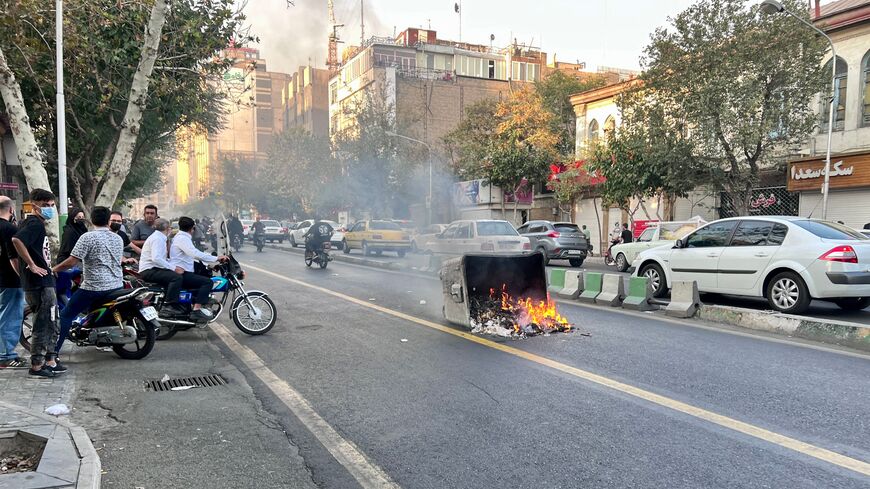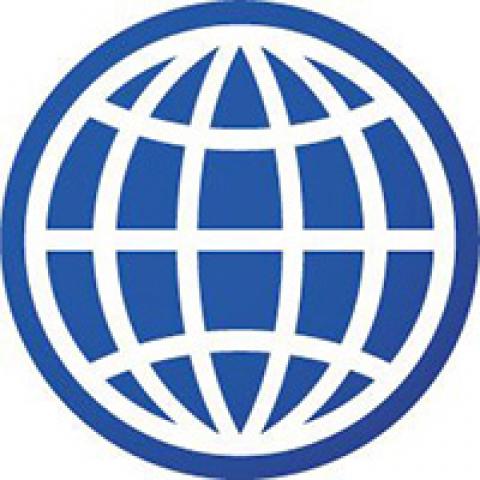TEHRAN — The Iranian government made nationwide arrests on Monday and Tuesday following more protests marking the Chaharshanbe Suri, the ancient festival of fire that falls on the eve of the last Wednesday of the year on the Persian calendar.
Videos posted by activists on social media showed litter bins on fire amid chants of "women, life, freedom" in the southern districts of the capital, Tehran, in the southeastern flashpoint city of Zahedan and in several Kurdish cities, where security forces had been deployed en masse.
مگر میشود دیلان آزادی را ندید؟
— Omid Barin | امید برین (@barin_omid) March 14, 2023
کرمانشاه - کرند#زن_زندگی_آزادی#ژینا_امینی#کردستان pic.twitter.com/09LvazIllv
Opposition activist collective 1500 Tasvir released photos it said had been sent from Iranians preparing Molotov cocktails to target government and military buildings. The footage went viral of a monument of slain Iranian commander Qasem Soleimani in the city of Zanjan burning in flames after being hit with one such weapon.
'به آتش کشیدن یابود #قاسم_سلیمانی در #زنجان، ۲۲ اسفند'#مهسا_امینی pic.twitter.com/cEHfmlOwnN
— Vahid Online (@Vahid) March 14, 2023
"We will set fire to headscarves on Chaharshanbe Suri," read some wall graffiti, referencing a symbolic act of defiance that has been central to the protests against the Islamic Republic's mandatory hijab law, a fundamental tenet of the ruling theocracy.
Yet in preemptive measures, Iran's security forces conducted mass arrests in five provinces. In a statement published by the government-run IRNA news agency on Monday, the country's Intelligence Ministry linked the arrested individuals to exiled opposition groups Mujahedeen-e-Khalq (MEK) and the Democratic Party of Iranian Kurdistan. It also reported the confiscation of caches of explosives during those operations.
The hard-line commander of the Iranian Police, Ahmad-Reza Radan, also issued stern warnings against any protests, advising parents to "mind" their children as he vowed action against those who "cross the line."
And Tehran's police chief separately declared that apart from regular forces in uniform, plainclothes officers will also aid in security on Chaharshanbe Suri. Those forces known as the Basij militia are under the auspices of the Islamic Revolutionary Guard Corps (IRGC), which has been heavily engaged in the recent bloody crackdown that has left at least 530 people killed, according to the Human Rights Activists News Agency.
Mounting crackdown on dissent
The fresh protests came despite statements by Iranian authorities insisting that the "sedition" was quelled in its entirety long ago. But in the latest turn, the Iranian judiciary went after prominent Kurdish lawyer Saleh Nikbakht, who has been officially representing Mahsa Amini's family in their frustrating pursuit for justice.
According to the Paris-based Kurdistan Human Rights Network, Nikbakht was indicted with "propaganda" against the Islamic Republic through statements and interviews with foreign media. Freed on bail, Nikbakht is awaiting a trial that could land him up to one year in prison.
The Islamic Republic's campaign to muzzle dissent has particularly targeted outspoken celebrities in varying forms over the past six months. That entered a new episode on Tuesday after at least 53 of them were reportedly placed under an Iranian government order of asset freezes. The ruling will effectively ban those individuals — among them Oscar-winning director Asghar Farhadi and acclaimed actress Taraneh Alidousti — from selling any private properties they own.
"I'm proud of my offense," wrote dissident musician Mehdi Yarahi in an Instagram post announcing his inclusion on the list.
To fill the widening fractures in the infuriated society, Supreme Leader Ayatollah Ali Khamenei issued a mass pardon in February covering thousands of prisoners — among them protesters. Precise figures were not released by Iranian officials until this week when judiciary chief Gholam-Hossein Mohseni Ejei put the number at over 22,600.
While an unspecified many are still incarcerated due to their ineligibility for Khamenei's clemency, the figure stood well above estimates by rights groups and marked the largest mass arrest campaign the Islamic Republic has conducted in the face of the most serious domestic challenge it has faced in decades.








